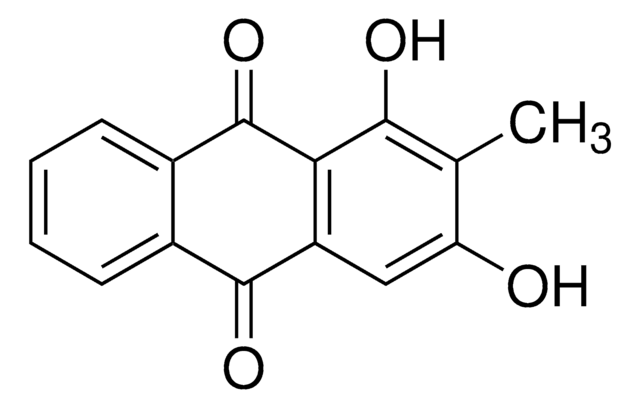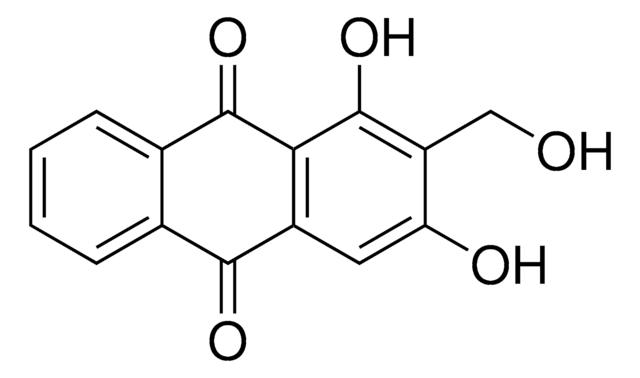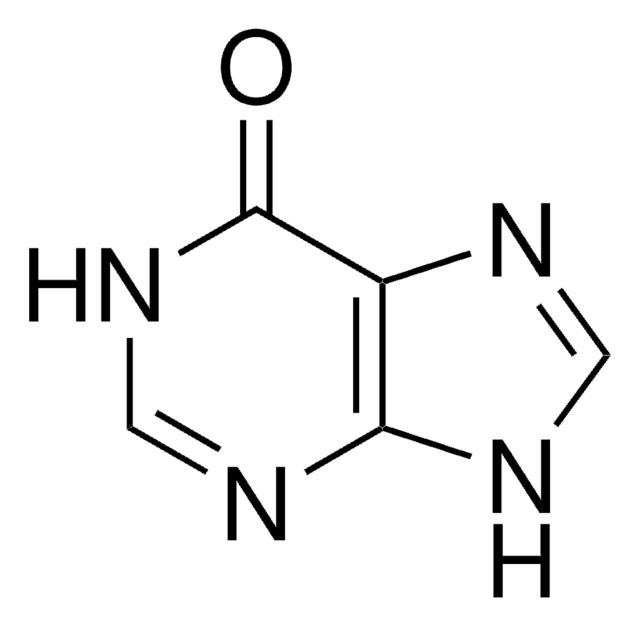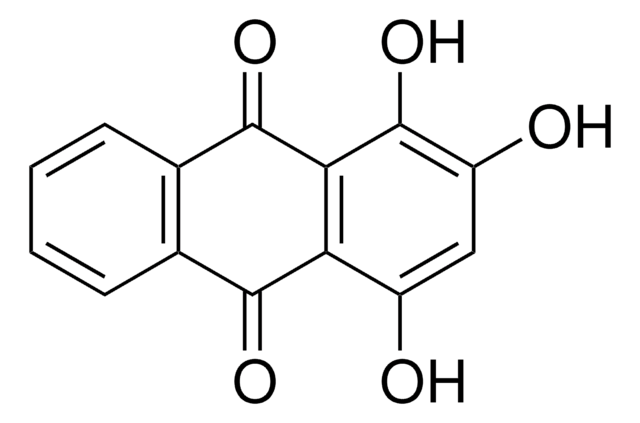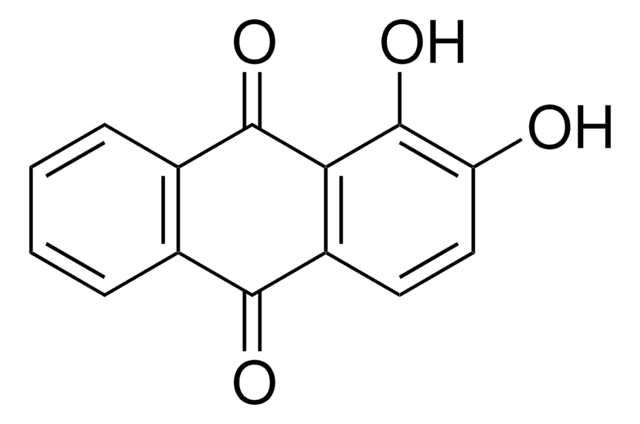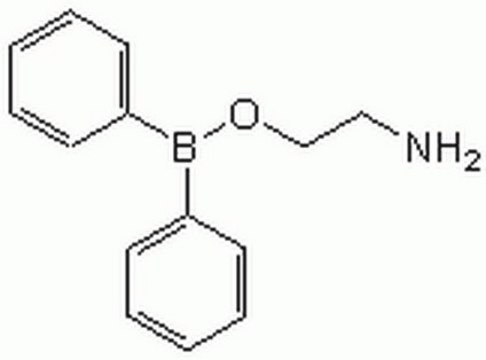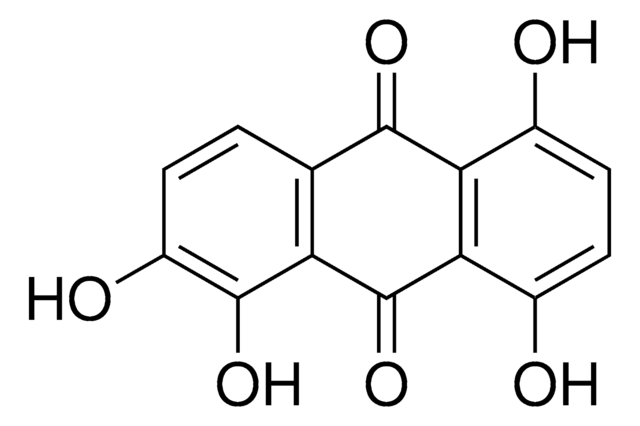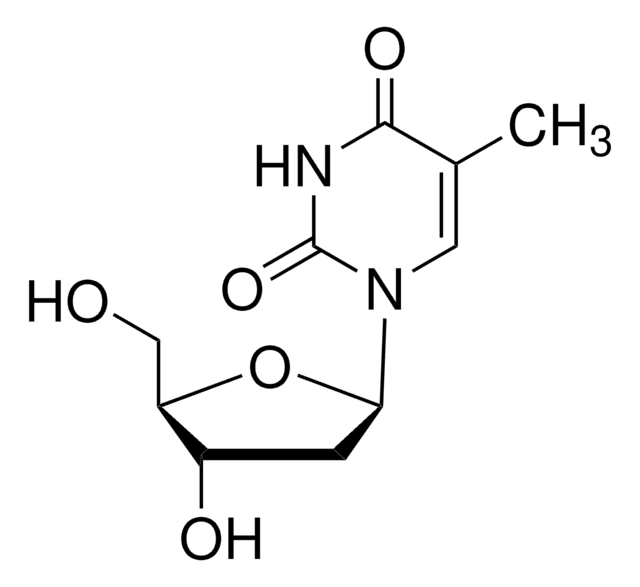74553
Rubiadin
analytical standard
Synonym(s):
1,3-Dihydroxy-2-methyl-9,10-anthracenedione, 1,3-Dihydroxy-2-methylanthraquinone
About This Item
Recommended Products
grade
analytical standard
Quality Level
assay
≥95.0% (HPLC)
shelf life
limited shelf life, expiry date on the label
technique(s)
HPLC: suitable
gas chromatography (GC): suitable
application(s)
food and beverages
format
neat
SMILES string
O=C1C2=C(C=C(O)C(C)=C2O)C(C3=CC=CC=C31)=O
InChI
1S/C15H10O4/c1-7-11(16)6-10-12(13(7)17)15(19)9-5-3-2-4-8(9)14(10)18/h2-6,16-17H,1H3
InChI key
IRZTUXPRIUZXMP-UHFFFAOYSA-N
Looking for similar products? Visit Product Comparison Guide
Related Categories
Application
signalword
Warning
hcodes
Hazard Classifications
Acute Tox. 4 Oral - Carc. 2
wgk_germany
WGK 3
flash_point_f
Not applicable
flash_point_c
Not applicable
Choose from one of the most recent versions:
Certificates of Analysis (COA)
Sorry, we don't have COAs for this product available online at this time.
If you need assistance, please contact Customer Support.
Already Own This Product?
Find documentation for the products that you have recently purchased in the Document Library.
Our team of scientists has experience in all areas of research including Life Science, Material Science, Chemical Synthesis, Chromatography, Analytical and many others.
Contact Technical Service